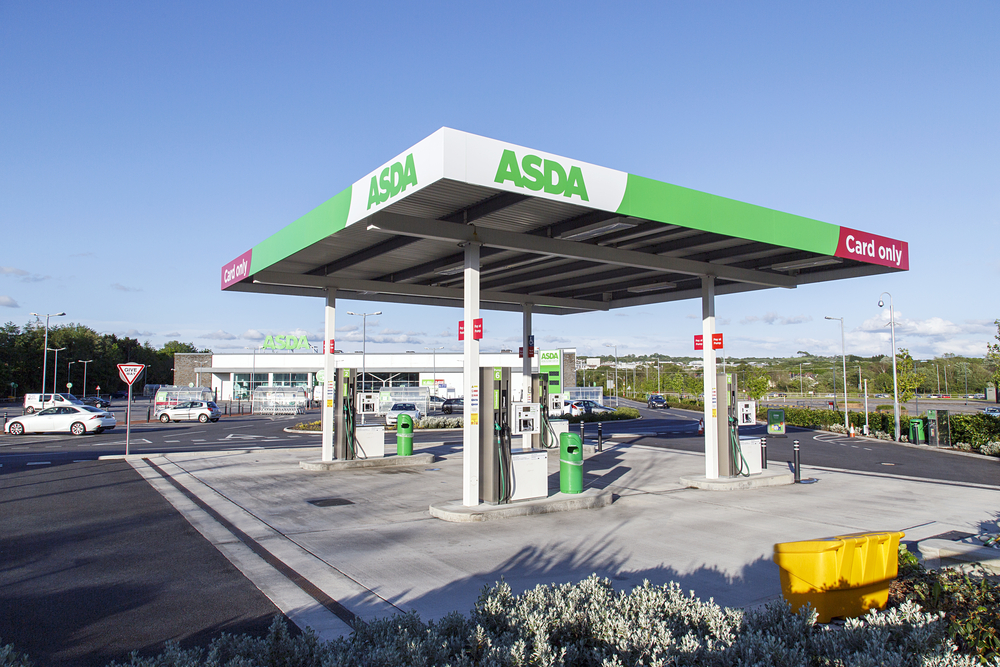Household Bills
Petrol price war begins after four miserable months for drivers

The cost of petrol has been rising for four months, but there’s finally some relief for drivers – as supermarkets kick off a price war.
A fresh supermarket fuel price war is underway after Asda, Morrisons, Sainsbury’s and Tesco announced cuts to both diesel and unleaded.
Asda was the first retailer to announce it was cutting 3p off a litre of diesel and 1p off a litre of unleaded from tomorrow (6 June).
The new prices mean drivers will pay no more than 128.7ppl on diesel and 126.7ppl on unleaded.
Asda’s senior fuel buyer, Dave Tyrer, said: “Motorists have seen rising prices at the pumps since March so it will be a welcomed boost that as a result of wholesale prices recently falling we’ve been able to pass these savings onto our customers.”
Morrisons quickly followed, announcing it was cutting the cost of diesel and unleaded by up to 3p a litre from tomorrow. It is also offering 5p-a-litre off the cost of fuel when customers spend £40 or more in store until 16 June.
Sainsbury’s then said it was cutting the price of both unleaded petrol and diesel by up to 3p a litre by Friday, while Tesco confirmed the same changes but with effect from tomorrow.
These price cuts will come as a relief to drivers, who have faced rising fuel costs for four consecutive months.
Petrol went up by 2.34p in May to 130.57p, making it 11p a litre more expensive than it was at the beginning of February, according to RAC Fuel Watch.
Diesel rose by 1.74p to 135.54p last month, 7p dearer than in February.
RAC fuel spokesman Simon Williams said: “May was another miserable month for drivers, with the fourth straight average price rise of both petrol and diesel taking us near to a five-year high. Luckily though, oil closed out the month 9 per cent lower at $65 which should soon translate to lower prices at the pumps.”
Shortly after the price cuts were announced, Williams added: “While this is obviously welcome it’s important to realise that the drop in wholesale costs has been dramatic, meriting far bigger price reductions for both petrol and diesel. For this reason we view this round of cuts very much as a good start. We should really see more in the next week or so.”
Kitty Bates, consumer spokesperson at fuel information service PetrolPrices.com, said: “We would expect to see other supermarkets follow suit over the next couple of days as they start to compete on price, with independent retailers following this once they have sold through their existing stock.
“There’s considerable scope for prices to continue to drop, as oil prices have fallen drastically in the past few days and we would expect them to either level out or potentially fall even further.”
How to save money on fuel
If you are keen to save money at the pump, here are six top tips to consider:
a) Shop around for the cheapest fuel
Download the PetrolPrices app to keep you updated on the latest fuel prices while you’re on the road. It has all the filters you need to make sure you find the best fuel near you.
b) Make the most of loyalty offers
The big supermarkets often tempt customers into their shops by reducing their fuel prices. Sometimes they’ll offer money-off vouchers at the till for use at their forecourts, and discounts can be as high as 10 pence per litre – £5 per fill up (see Morrisons deal above).
c) Think about your speed
You’ll use up to 9 per decent more fuel driving at 70mph than you would at 60mph and up to 25 per cent more fuel travelling at 80mph instead of 70mph. Drive at the lowest speed you can, in the highest gear possible.
d) Get clever with hills
Steep inclines destroy fuel economy. If you spot a hill ahead, slightly speed up before you reach it, then reduce speed as you drive up.
e) Don’t use your air conditioning unless you have to
It uses the power of the engine which increases fuel consumption.
f) Consider making one round trip instead of several short trips.
Engines work at their most efficient once warm. Starting a cold engine several times increases fuel consumption, even though your journey may involve the same number of miles.